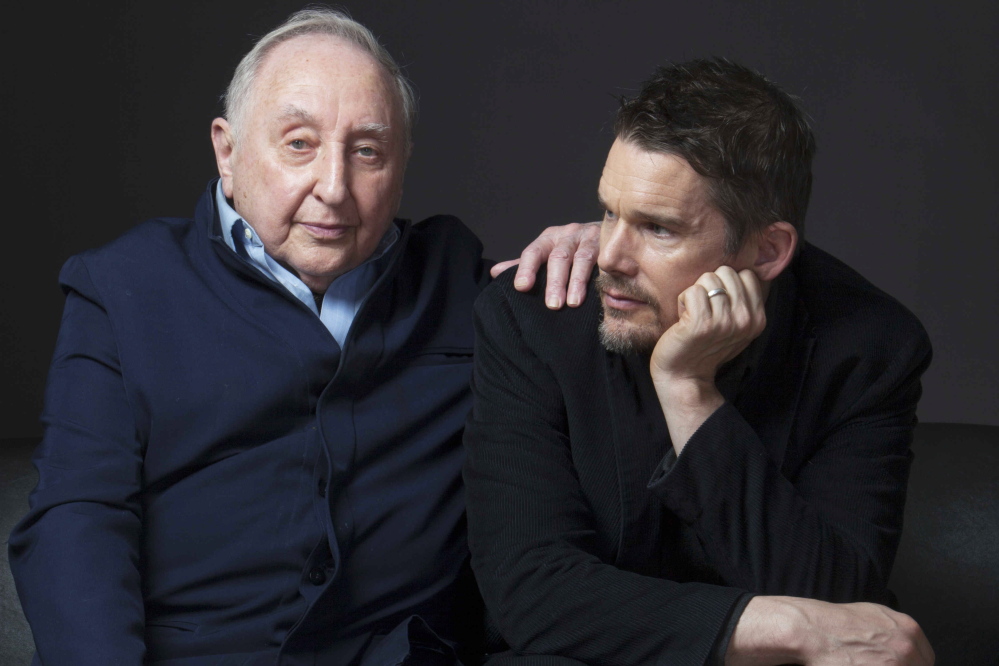“Music and life interact in a never ending cycle of fulfillment”
— Seymour Bernstein
A more boring, off-putting title has never been written. The title of this movie comes from Ethan Hawke, who most recently received praise for his participation in the Oscar nominated “Boyhood.” Never an exciting film actor, it seems that Hawke does have a talent for uncovering people with incredible stories, and has shared one with us in this documentary with a terrible title.
Hawke directed the piece and appears in it in small fragments, to give us the required background on the wonderful and gifted classical pianist and teacher, Seymour Bernstein.
Apparently there is much more to be learned in Bernstein’s memoir, written in 2002, “Monsters and Angels: Surviving a Career in Music.” We will need, I’m told, to go to that to get more deeply into the personal story of what appears to be one of musics’ great artists.
This documentary gives us the man who would rather talk about music and teach young musicians than play on a concert stage, a platform he long ago abandoned. There is much here about his crippling stage fright and his memories of serving in the Korean War.
One among many of the most stunning moments we take from this piece is the story of a young pianist, fresh from Carnegie Hall, being drafted and serving in the war, and his bunkmate, a violinist.
In the story, a colonel, upon discovering the two armored and helmeted musicians had asked for time to practice, had special uniforms made for them and sent them to perform concerts along the front lines.
That’s front lines as in shells, missiles, blood and snow. One can imagine that colonel looking at the delicate and beautiful hands of these two young men, and imagining what they would become without those fingers. Having heard the artistry of Bernstein, one can imagine a benevolent deity with a good ear.
Hawke, who met Bernstein at a party, “felt safe” with him and began a friendship. Hawke tells of his own fears of performing. The two men, one who still struggles with the ephemeral life of screen acting, the other who has long mastered the celestial beauty of Bach, Beethoven and Shubert, had long discussions over time and as a result, we, the audience, are the lucky recipients.
We discover how as a child, Seymour begged his mother for piano lessons when there was no piano in the house, no music of any kind, not even a record.
But someone gave the family an old upright piano and sheet music. When Seymour plugged out the notes of a serenade by Franz Schubert, he began to cry. “It was the most beautiful sound I had ever heard,” he remembered.
“Seymour: An Introduction” gives us the melodic voice, humor and sensitivity of an artist, that keeps it from becoming a dusty recitation of anecdotes.
We meet and learn much here about a gifted and acclaimed pianist who, greatly acclaimed from his debut with the Chicago Symphony in 1969, suddenly walked away from his career and started a life in teaching.
Strangely, it was a gesture that paid off for many students, and those of us who have suffered a life without this revelation. For that, I thank Hawke.
J.P. Devine is a former stage and screen actor.
Copy the Story LinkSend questions/comments to the editors.



Success. Please wait for the page to reload. If the page does not reload within 5 seconds, please refresh the page.
Enter your email and password to access comments.
Hi, to comment on stories you must . This profile is in addition to your subscription and website login.
Already have a commenting profile? .
Invalid username/password.
Please check your email to confirm and complete your registration.
Only subscribers are eligible to post comments. Please subscribe or login first for digital access. Here’s why.
Use the form below to reset your password. When you've submitted your account email, we will send an email with a reset code.